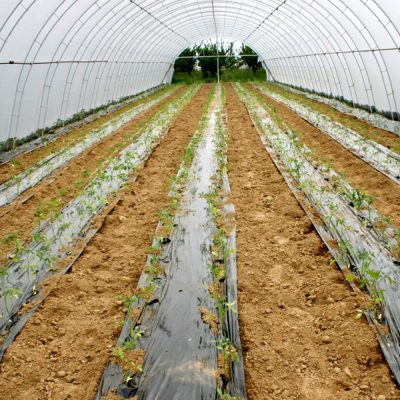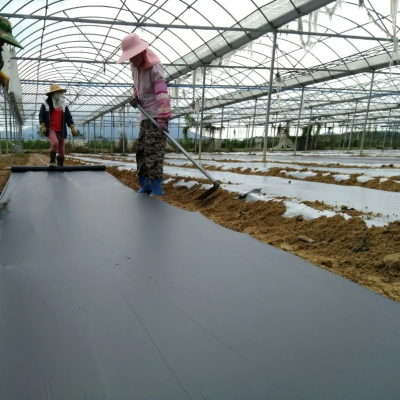Using agriculture films in crop production and protection offers several benefits that contribute to increased yield, improved crop quality, and more efficient farming practices. Here are some key benefits of using agriculture films:
- Enhanced Crop Growth: Agriculture films create a favorable microclimate around plants, promoting optimal growth conditions. They regulate temperature, conserve moisture, and protect plants from harsh environmental conditions, such as wind, frost, or excessive sunlight. This leads to improved plant health, faster growth, and higher crop yields.
- Weed Control: Mulch films and weed barrier films suppress weed growth by blocking sunlight and preventing weed germination. This reduces competition for resources like water, nutrients, and sunlight, allowing crops to grow more efficiently. With fewer weeds, farmers can save time and labor spent on manual weeding or herbicide application.
- Water Conservation: Agriculture films help conserve water by reducing evaporation from the soil surface. Mulch films act as a barrier, preventing water loss through evaporation and reducing the frequency of irrigation. This is particularly beneficial in arid or drought-prone regions where water resources are limited.
- Soil Moisture Management: Films, such as mulch films and drip irrigation tapes, help regulate soil moisture levels by preventing excessive evaporation and controlling water distribution. They ensure that water reaches the plant roots efficiently, reducing water waste and promoting healthier root development.
- Disease and Pest Control: Agriculture films act as a physical barrier, protecting plants from pests, insects, and pathogens. They prevent airborne pests from reaching crops, minimize contact with soil-borne diseases, and reduce the need for chemical pesticides. This promotes healthier plants and reduces the risk of crop damage or yield loss.
- Improved Crop Quality: Agriculture films can enhance crop quality by providing a controlled growing environment. Greenhouse films, for example, regulate temperature, humidity, and light levels, resulting in more uniform plant growth and higher-quality produce. Mulch films can also improve the appearance and cleanliness of harvested crops by preventing direct contact with the soil.
- Extended Growing Season: With the use of greenhouse films and other protective covers, agriculture films can extend the growing season by providing insulation and shielding crops from adverse weather conditions. This allows farmers to cultivate crops beyond their natural growing season, increasing productivity and profitability.
- Reduced Chemical Inputs: By providing physical protection and reducing pest pressure, agriculture films can help minimize the need for chemical pesticides and fertilizers. This contributes to environmentally friendly and sustainable farming practices, reducing the impact on ecosystems and human health.
- Cost Savings: Agriculture films offer cost savings in various ways. They reduce labor costs by minimizing weed control and manual watering. They also contribute to resource efficiency, such as water conservation and reduced chemical inputs. Additionally, by protecting crops from pests and diseases, films help prevent crop losses and maintain higher yields, resulting in improved profitability for farmers.
It is important to consider the specific crop, growing conditions, and environmental factors when selecting and using agriculture films. Following proper installation and maintenance practices, as well as considering the environmental impact and responsible disposal of these films, can further maximize their benefits in crop production and protection.








